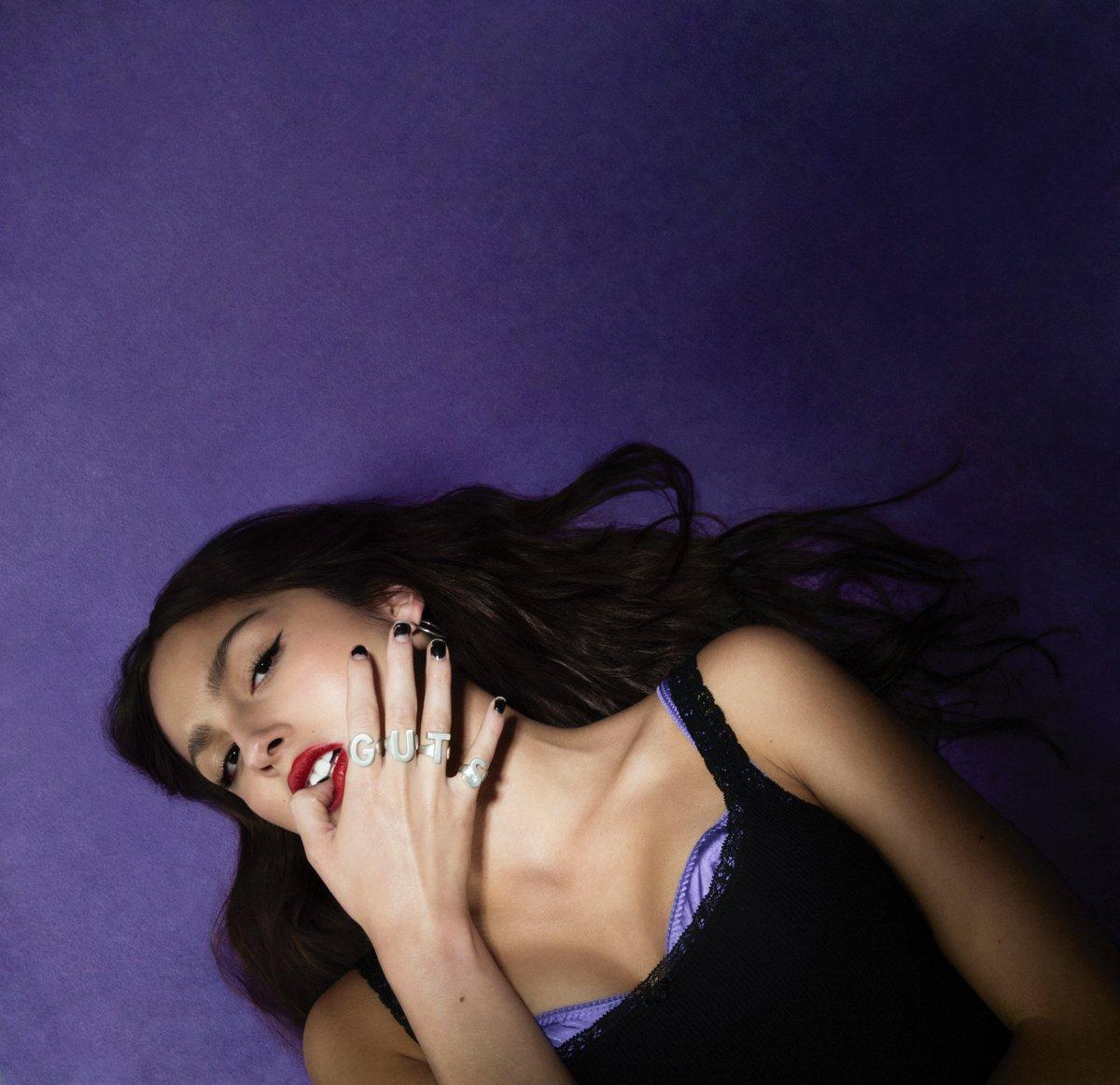‘25
“Got your whole life ahead of you, you’re only 19 / But I fear that they already got all the best parts of me.”
Olivia Rodrigo is back, and she’s better than ever. After the release of her debut album, SOUR, the singer-songwriter was faced with a lofty image to maintain. All too often, aspiring pop legends lose their fame and name to time, facing the infamous “sophomore slump,” the music industry’s phenomenon where an artist’s second album fails to live up to the early expectations set by their first. However, with the release of GUTS, Olivia Rodrigo proves the world wrong yet again, unsurprisingly. Rodrigo spreads number-one hit songs quicker than a rumor in a small town.
Almost three years ago, at the beginning of 2021, Rodrigo released “drivers license,” her first single outside of the realm of Disney shows. With the release of SOUR, Rodrigo quickly became one of the loudest voices for Gen Z, scoring herself quadruple-platinum and recognition as Billboard’s 2022 Woman of the Year. Vaulting herself from Disney girl to A-list pop star, and further winning herself a Grammy Award for Best New Artist, Rodrigo zeroed in on the experience of teenage girlhood, throwing out breakup ballads like a feather in a whirlwind, hoping to come out alright.
Unlike the sorrowful specifics of SOUR, Guts titters between Avril Lavene-esque rock and plaint melancholy, turning her old despair into wit by poking fun at herself and her past heartbreaks. In doing so, she is more mature in her analysis and exploration, taking on a broader perspective in her writing. Instead of speaking only on anguish and heartache, she takes into account the factors of fame and feminism. She is still as acerbic as ever, but she sees it now and tries to make amends for it.
One reason why Guts seems to hit so hard amongst younger generations—especially Gen Z—is because Rodrigo speaks from the perspective of a pop star, but simultaneously from that of a teenager. In her lead single, “vampire,” she combines both the brattiness of girlhood and the morose to get her point across, proving she has the deftness to write both catchy criticisms and tortured ballads. She goes from yelling to lamenting, combining pop-punk with lyrical sonnets.
In the first song in the album, “all-american b***h,” she steers away from her old romantics and instead scathingly critiques the impossible standards for young female celebrities, looking down on how society treats women in the public eye. Similarly, in “pretty isn’t pretty,” Rodrigo hones in on body issues, taking note of her struggle to self-love, especially when under the spotlight. “making the bed” provides a grim picture of fame, and only fame, thereby making it the one outlier of the album, as it has no relation to the average teenage experience.
“bad idea right?”, “love is embarrassing,” and “the grudge,” all turn to self-mockery. Through brash anger, she highlights teenage, self-serious angst, but secretly hints at the aches and pains of being on the wrong side of a toxic relationship. While some of her other songs like “get him back,” delve into petty punkish fantasies of revenge—hence, “I wanna meet his mom / Just to tell her her son sucks”—many hold deeper meanings than just gilded teenage love. She notes prominent concerns, such as social embarrassment (“ballad of a homeschooled girl”), disillusionment (“lacy”), the woes of manipulation, and the teenage urge to be loved (“logical”).
To close out the album, Rodrigo’s “teenage dream” showcases both sides of her music again, intertwining the bratty with the pitiful. The song is particularly apologetic, pointing out her failure to live up to expectations, divulging that society’s perception of the “teenage dream” is an illusion, a mirage to be indulged, a fantastical fantasy. It is a sheer opposition to her previous album, in which she asks, “where’s my teenage dream?” Rodrigo wants the world to know she’s found it now, and it’s not what her younger self thought it would be.
Olivia Rodrigo maintains a strong emotional presence throughout her sophomore album. She encompasses all of adolescence, appealing to the despaired, the lost, the angry, and the hurt.
“When am I gonna stop being wise beyond my years and just start being wise?” she asks as she closes out the album. It seems the answer is clear, and that answer is now.








